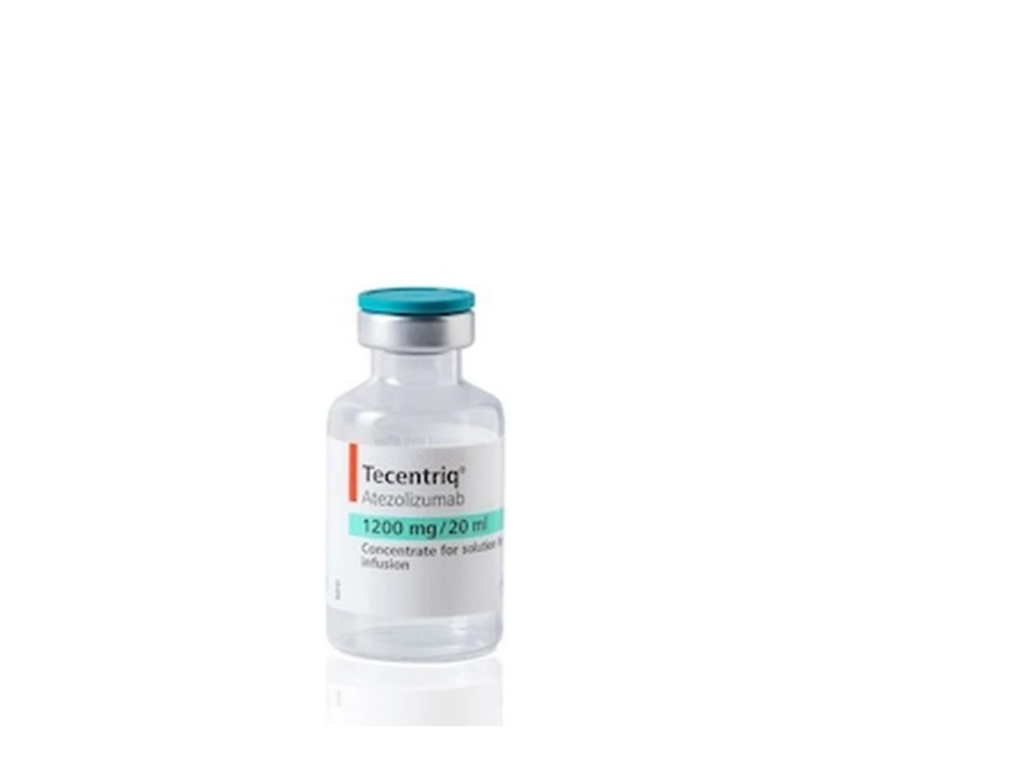The Committee for Medicinal Products for Human Use (CHMP) of the European Medicines Agency has recommended the approval of Roche’s Tecentriq (atezolizumab) to treat a type of non-small cell lung cancer (NSCLC).

Tecentriq is indicated as an adjuvant treatment for NSCLC in adults with a high risk of recurrence. Credit: F. Hoffmann-La Roche Ltd.
Subscribe to our email newsletter
The drug will be indicated as an adjuvant treatment for NSCLC in adults with a high risk of recurrence with PD-L1≥50% and without EGFR mutant or ALK-positive NSCLC, following complete resection and platinum-based chemotherapy.
Tecentriq is a monoclonal antibody designed to block the programmed death ligand-1 (PD-L1) protein, expressed on tumour cells and tumour-infiltrating immune cells.
The drug is approved in the EU and countries worldwide, as a standalone therapy or in combination with targeted therapies and/or chemotherapies to treat various forms of metastatic NSCLC, PD-L1-positive metastatic triple-negative breast cancer, certain metastatic urothelial cancer types, and BRAF V600 mutation-positive advanced melanoma.
The European Commission is expected to provide its final decision for Tecentriq soon.
Roche chief medical officer and Global Product Development head Levi Garraway said: “The goal of treating early-stage cancers is to provide the best chance for a cure.
“The announcement brings hope that, after a decade of limited treatment advances, many people in Europe with early non-small cell lung cancer will soon have a new treatment option to reduce the risk of their disease returning.”
The regulator’s positive opinion was based on the data obtained from the DFS interim analysis of the Phase III IMpower010 study.
In the study, Tecentriq reduced the risk of disease recurrence or death (DFS) by 57% in people with PD-L1≥50% Stage II-IIIA NSCLC compared with best supportive care (BSC).
If approved, the drug is expected to become the first and only cancer immunotherapy available for a subset of people with early-stage NSCLC in Europe.
 Advertise With UsAdvertise on our extensive network of industry websites and newsletters.
Advertise With UsAdvertise on our extensive network of industry websites and newsletters.
 Get the PBR newsletterSign up to our free email to get all the latest PBR
news.
Get the PBR newsletterSign up to our free email to get all the latest PBR
news.